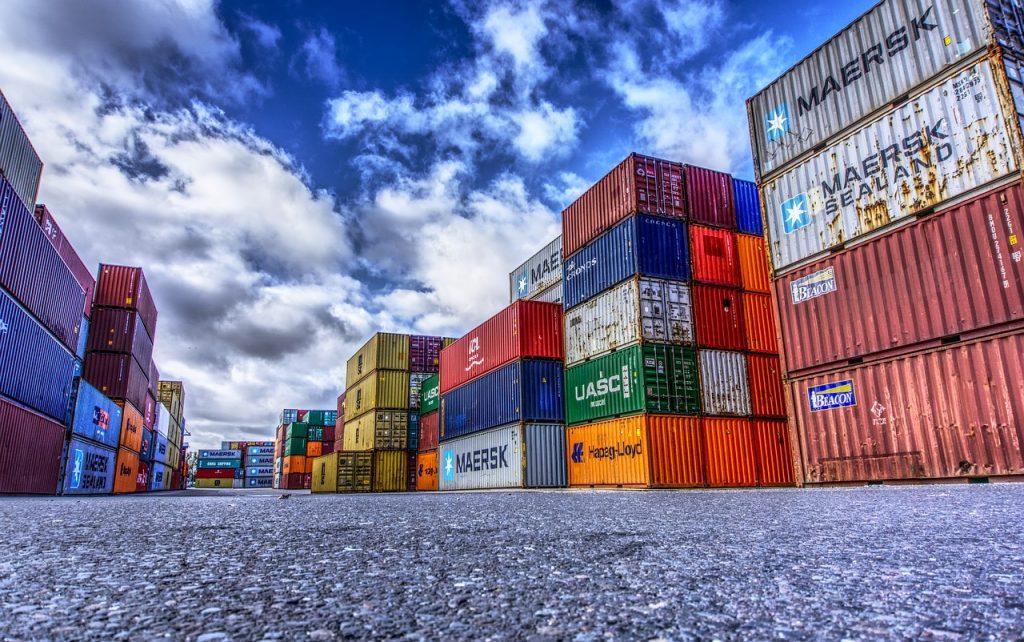If you are starting a business that will be sending products from point A to point B, you’ll need to be familiar with Incoterms. Incoterms stands for International Commercial terms, and determine the legalities regarding ownership of the product. In plain speak, the terms tell you where along the line between origin and destination the product becomes the customer’s products.
Defining the transfer of ownership through Incoterms will help you and your customers clarify who is responsible for shipping costs, customs clearance, and insurance should damage occur. So while you’re trying to figure out how to rent portable storage containers and arrange cargo, take a moment to familiarize yourself with the standardized logistics lingo.
Ex Works (EXW)
Simply put, Ex-works terms put the burden on the buyer when it comes to shipping costs, import and export considerations, and damages. The seller is required to make the product available for the buyer to pick up, at which time they relinquish ownership. Regardless of if the journey is a straight shot, or via multiple modes of transportation, it is up to the buyer to figure it out.
Free Carrier – Place of Origin (FCA)
Similar to Ex-works, FCA puts the majority of the burden on the buyer. In this case, however, the seller has responsibilities beyond preparing the shipment for pick-up. With FCA, the transfer can either be at the seller’s facility, with freight forwarders, or at the port of origin. The seller is responsible for clearing customs and loading the product to be shipped if the transfer is at the seller’s facility.
Free Alongside Ship (FAS)
FAS shipments according to Incoterms are applicable only to packages traveling by waterway, whether inland or ocean. Usually, the exact name of the port is listed immediately following “FAS” on the paperwork. For FAS shipments, the seller is responsible for delivering the product to the port with all necessary paperwork and documentation completed and submitted to the proper regulatory bodies. Buyers are responsible for the fees associated with the time of drop-off, including loading the freight onto the ship and the cargo space itself.
Free On Board (FOB)
FOB shipping, like FAS, is meant only for transportation via waterway. Unlike FAS, FOB shipments transfer in ownership once the product is loaded on the boat. The term was created for bulk shipments rather than containerized shipments, to account for products that could experience loss during transport (bulk turnips, for example).
Cost and Freight (CFR) and Cost, Insurance, Freight (CIF)
Another waterway transport term, CFR requires the seller to cover the cost up until the shipment arrives at the destination port. While the seller is responsible for labor and shipping fees up until that point, the buyer is responsible for insurance and damages should anything go wrong during the shipping process. Whereas CFR requires the buyer to worry about insuring the shipment, CIF puts the burden of insurance on the seller. The rest remains the same.
Cost and Insurance Paid to (CIP) and Carriage Paid to (CPT)
In CIP, the seller is responsible for shipping costs to the destination and for procuring a minimum amount of insurance. However, their risk ends when the goods are given to the first carrier. In CPT, the risk and ownership are similar minus the burden of insurance on the seller.
Delivery at Place (DAP) and Delivery at Terminal (DAT)
For DAP shipments, the seller assumes costs and risks until the product reaches the agreed-upon destination. This could mean anything from the port to the warehouse, so the agreement should be specified at the time of the sale. DAT shipments follow the same protocol, with a more specific reference to the port or terminal where the shipment arrives.
Delivery Duty Paid (DDP)
DDP shipments put the majority of the burden on the seller. Consider this the opposite of Ex-works. The seller assumes the cost and risks from point A to point B, until the buyer signs off on the shipment. Any damages, insurance, import fees, and labor fees fall on the seller.
If you’ll be dealing with complex shipments and sending products abroad, be sure to consult with logistics and customs experts before diving in. Mistakes are costly in the shipping business!





